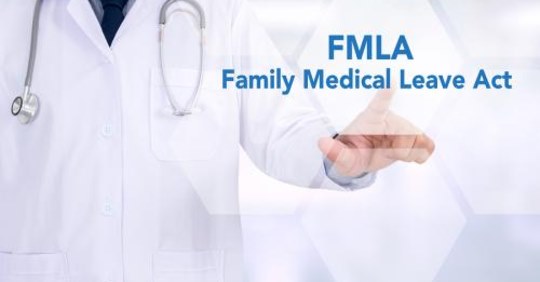Below is a review of the posts (on Facebook, LinkedIn, and Twitter) from the past week. You can check out the full posts by clicking on the links.

In the post on Sunday 2/23/20, we learned that a court must consider employer’s obligation to maintain harassment-free workplace when evaluating employee’s Section 7 protected conduct. NOTE that this is relevant to ALL employers (not just unionized). So, what happened? The employer changed its procedure for assigning overtime work. Some employees who were union members were unhappy. What they did and said when the employer used a sign-up sheet is in the post (and will surprise you). After one employee made a writing (also noted in the post), the employer discharged that employee. The reasoning behind the discharge is also in the post. After a charge was filed, the NLRB was faced with an issue pitting an employer’s obligation to maintain an harassment-free workplace (with some examples given in the post) and its obligation to comply with Section 7 of the NLRA (which is recapped in the post). The NLRB ruled in favor of the employee; the employer then appealed to the federal court. How the court ruled is in the post.
TAKEAWAY: Sometimes an employer is in a Catch 22 – caught between two or more different laws. This is no different. Stay tuned.

The post on Monday 2/24/20 reminded us that employers need to be aware of where they advertise when it comes to social media. There are so many platforms where an employer can advertise open positions. But that means there are so many ways for an employer to get caught up in something illegal, whether intentional or otherwise. The EEOC is still watching this area closely, especially where Facebook is used and a protected characteristic is involved. Charges were filed against several well-known companies named in the post. Last year, the EEOC issued probable cause determinations as noted in the post. Those, in turn, are now being cited in a class action suit (see the post).
TAKEAWAY: Employers must be careful how they advertise open positions – social media allows certain targeting, but employers must take advantage in a legal way.

The post on Tuesday 2/25/20 told us that condos, PUDs and homes in homeowners associations (HOAs) differ by what’s owned or shared. Applicable law and documents are key and bind all owners. A quick primer on the difference between condos, PUDs and hoes in HOAs is in the post. It is important for owners to know what their responsibility is and what the Association is responsible for – examples are in the post.
TAKEAWAY: Covenants and Restrictions, along with Bylaws, Rules and even state law governs life in a planned community – consult an attorney well-versed in that area of law to ensure you know your rights and obligations.

The post on Wednesday 2/26/20 was about the first ADA-compliant parade float in history. Great strides! Yes, this has to do with Mardi Gras and its annual parade. Ans now Gasparilla’s Krewe of St. Francis Drake is helping one of the queens. See more about Christine in the post. Also learn more about the wonders of the float in the post.
TAKEAWAY: Accommodation is needed in all walks of life – here a feel-good story about how mobility-challenged people can take part in the celebration.

In the post on Thursday 2/27/20 we saw that a refinery will pay $75K to settle a dispute over worker needing a service dog. So, what happened? A military veteran with an honorable discharge was hired as an administrative assistant. She tried to use her service dog at work; what the dog did for her is in the post. The employer did not allow it. She got doctors’ notes explain how the dog helped (as noted in the post) but the employer still did not agree. The basis for its denial is in the post – including the alternative accommodations it offered and which she refused. The charge has now settled upon payment of $75,000 and other non-monetary relief.
TAKEAWAY: Know the law on service dogs – get advice from an employment lawyer to stay on the right side of legal.

The post on Friday 2/28/20 was a reminder that no-fault attendance policies create fault for employers under the FMLA. Yes, the goal for employers is to treat all employees the same – but that falls in the face of legal requirements. One of those times is when a no-fault attendance policy does not consider a legally excused absence and an employee who was on leave ends up being treated differently How that might play out is in the post. This was the issue in a federal case. There the court found the employer’s policy illegal because it treated FLA leave differently than other leaves. A summary of the court’s analysis is in the post and proves instructive to employers.
TAKEAWAY: Polices must be applied evenly – except when they can’t by law. Get good legal advice to know when the exception applies.

Finally, in the post yesterday 2/29/20, we asked employers to help me to help you—please, document! Reminiscent of the Jerry Maguire movie, see the all-too-common scenario posed in the post. In real estate the key words are “location location location”. In the employment arena, it is “document document document”. Even a verbal discussion should be documented – see the post. Why it is so important is also in the post. There is also a real-life example coming out of PA. The Temple employee had received warnings about behavior over the years; eventually discharge was considered. The steps the employer took are noted in the post. During the employee’s FMLA leave, he was discharged. He sued, claiming FMLA retaliation. How and why the court ruled is in the post.
TAKEAWAY: Documents can prove the defense an employer needs – so just do it.

 York, Pennsylvania 17403
York, Pennsylvania 17403